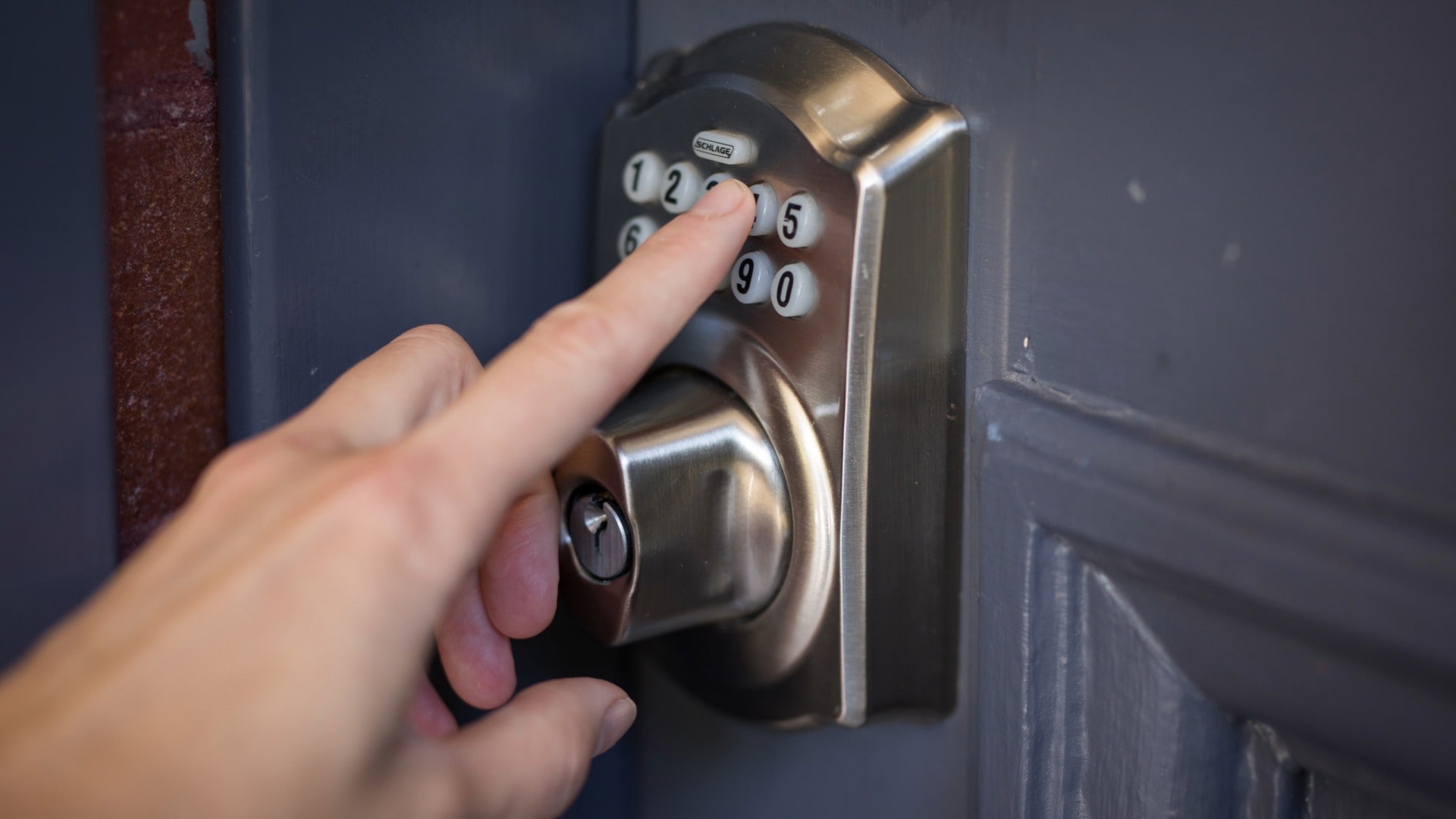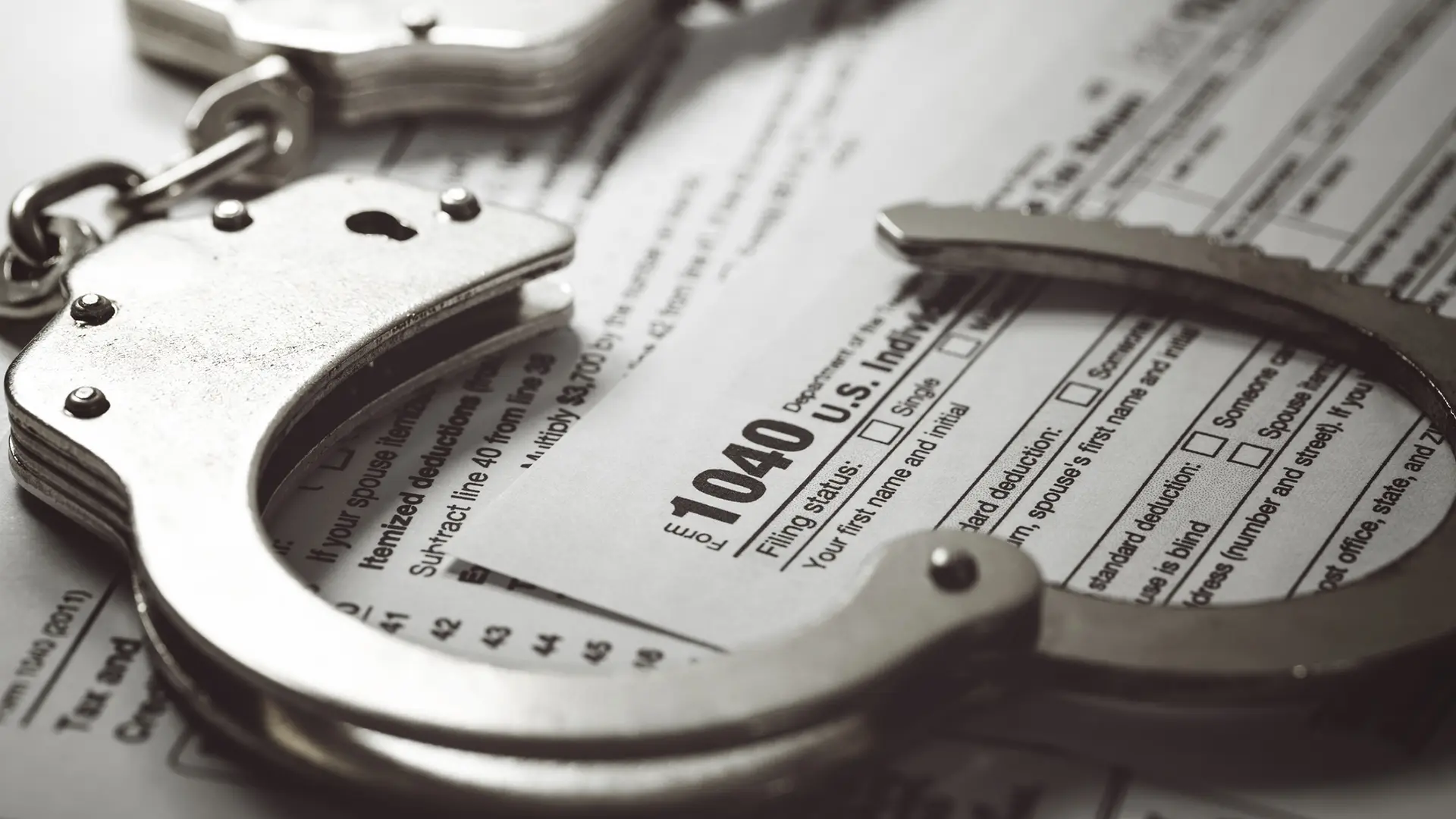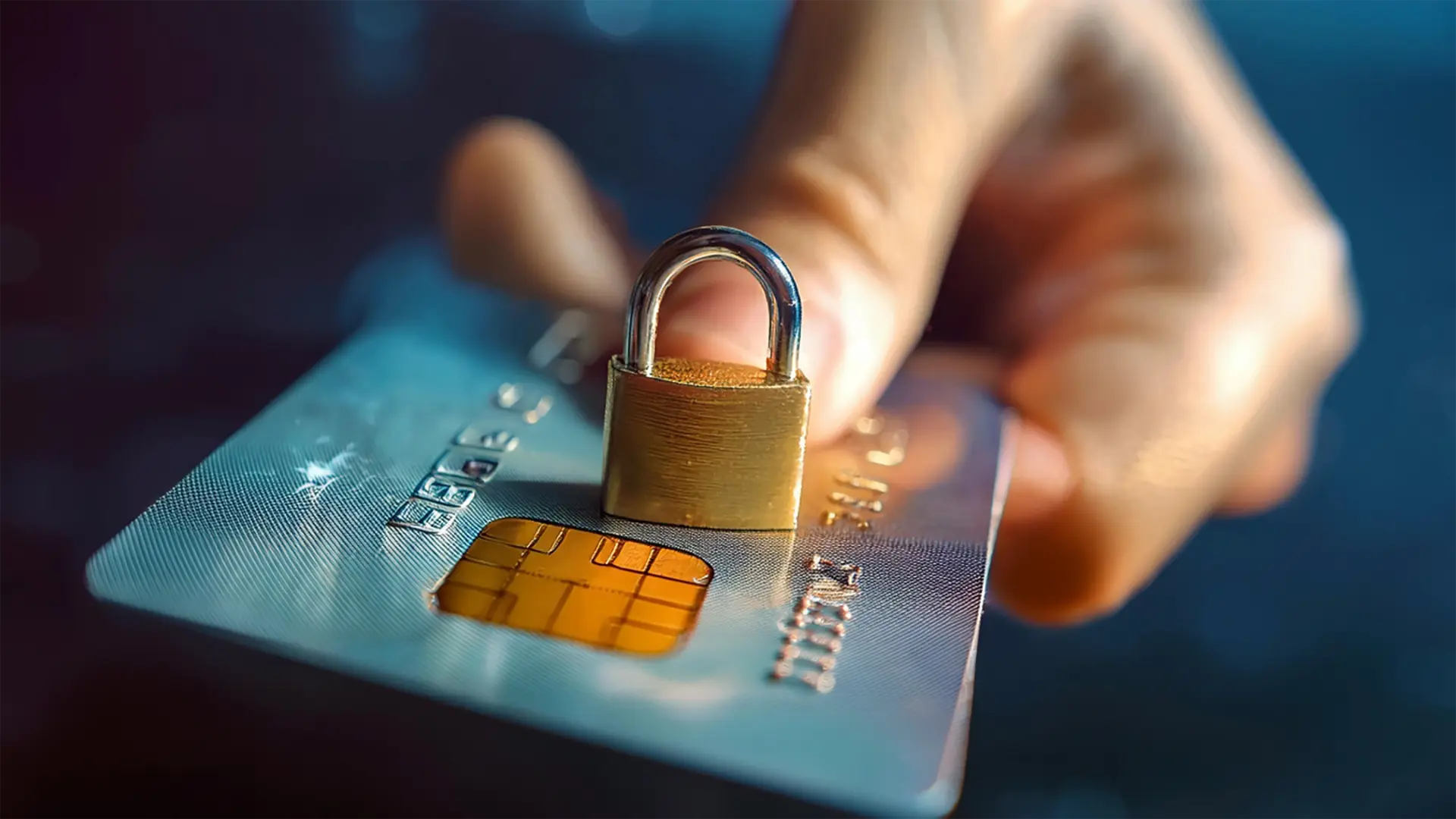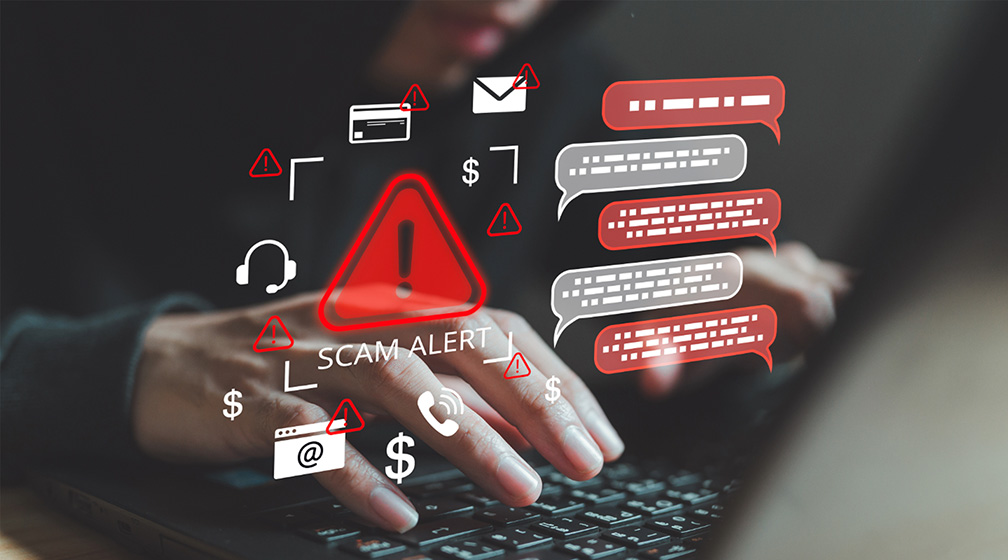
Airbnb and similar short-term rental platforms are popular choices for many people, as they offer the opportunity to stay in a home-like environment and enjoy a more unique experience than you might get with a hotel. But whether you’re a guest or a host, you need to be aware of the risks of Airbnb scams and avoid sending money or your personal information to criminals.
The last thing you want to remember from a vacation is stolen funds or identity theft. Learn how to spot scams before they ruin your trip.
What Makes Airbnb a Target for Scams?
While travel scams are a risk for any platform, there are several reasons that Airbnb is a popular target for scammers:
- Airbnb relies heavily on trust between guests and hosts.
- Airbnb listings are managed by individuals and are more difficult to control for quality.
- Reservations take place entirely online.
- Airbnb is a large platform used by millions of people.
Types of Airbnb Scams
Scammers can use Airbnb to target both guests and hosts. We’ll break down common scams to watch out for based on your situation.
Scams that Target Guests
Ready to go on vacation? Here are some common Airbnb scams targeting guests to be aware of.
Fake Airbnb Listing Scams
Scammers can create fake listings for homes they don’t really own. When the guest arrives, they realize that the property doesn’t exist or doesn’t resemble the listing.
Payments Outside of Airbnb
Airbnb can handle reservations within its platform, but scammers may ask for payment via gift cards or apps like Venmo or PayPal. Paying your host outside of Airbnb removes protections offered by the platform.
Phishing Scams
Scammers may impersonate Airbnb using phishing emails, text messages, or phone calls. The communications may appear legitimate, but they are trying to trick you into sending money or sharing personal info.
Bait-and-Switch
A host might advertise a desirable property at a competitive rate, but switch you to a less desirable listing at the last minute, claiming a maintenance issue or a double booking. In reality, the listing you booked may have never been available.
Scams That Target Hosts
Guests aren’t the only people susceptible to Airbnb scams. While Airbnb does provide some protections for their hosts, there are still potential risks for fraud. Here are some common scams to look out for if you plan to be an Airbnb host.
Fake Guest Profiles
Scammers may create guest profiles to book listings online. They use the property to conduct illegal activity, damage the rental, or invite more guests than should be allowed on the premises.
The Overpayment Scam
With an overpayment scam, the guest will try to arrange payment outside of Airbnb via a payment app like Venmo or Zelle. Then they “accidentally” pay more than the reservation costs and ask the host to send back the extra funds.
In reality, the scammer used a stolen credit card or another fraudulent form of payment. If the original payment gets reversed by the credit card company, the host will be out of pocket for the cost of the reservation and the funds they sent back to the scammer.
Phishing Scams
Just like guests, hosts can become the victim of phishing scams. The scammer may contact the host via email, text, or phone call claiming to be from Airbnb customer service or another official department. The goal is to get the host to send the scammer money, provide access to their account or their rental property, or hand over personal information.
Airbnb Scam Red Flags to Watch Out For
The best way to avoid being a victim of an Airbnb scams is to understand the red flags of the most common scams, and what to do if a situation seems fishy.
The Listing Is Too Good to Be True
If the property appears unusually nice – with a huge floor plan, luxury amenities, or prime location – but the price is modest, the listing could be fake. Make sure to look up the property address online to make sure it really exists. Ask the host for additional photos or a video tour and read reviews from other Airbnb users.
The Listing Lacks Information
If the listing doesn’t have many photos, lacks detailed descriptions, or has no reviews, you are taking a lot on faith. Look for listings that have plenty of information about the property, because they are more likely to be legitimate.
Requests for Transactions Outside Airbnb
According to Airbnb, the full cost of your reservation will always be paid within the platform, with a few exceptions – such as collecting certain types of taxes or paying for optional amenities. As a general rule, you should only exchange money through the Airbnb platform.
Messages Outside Airbnb
Airbnb does communicate by text message and email. For example, you may receive a confirmation email when you make a reservation. However, most communications should take place inside the Airbnb platform. Be suspicious of unsolicited messages outside the platform, or host requests to avoid communicating in the platform.
You Receive Links or Attachments
Links to websites outside Airbnb could be a phishing attempt to capture your information, and attachments could contain malware that infects your computer. Avoid following links outside of the Airbnb platform or downloading attachments.
What to Do If You Find an Airbnb Scam
Worried you might have experienced an Airbnb scam? Here are some of the most important steps to take.
Report Scams to Airbnb
You can report Airbnb scams that you come across directly to Airbnb:
- Report suspicious messages to Airbnb by navigating to the message, clicking the three dots, and clicking “Report This Message.” You will need to select a reason for reporting, and you have the option to provide additional details.
- Report suspicious listings to Airbnb by clicking on the listing, clicking “Report This Listing,” selecting the reason for reporting, and providing additional details if needed.
- You can also contact Airbnb Customer Service to report concerns to get help.
Recover Funds from Airbnb
The process for recovering funds from an Airbnb scam depends on the nature of the scam. Airbnb’s user protection feature, AirCover, can provide you a full or partial refund if there’s an issue with your rental – such as when the property doesn’t match the listing, or the host cancels on you last minute.
Recover Funds from Another Platform
If you got scammed out of money outside the Airbnb platform, Airbnb typically won’t cover the loss. You may attempt to recover your funds another way:
- Report fraud to the payment app. If you paid a scammer via a payment app like Venmo or Cash App, report the fraud to the app company. You may or may not be able to recover your funds, but the app provider can investigate the matter and possibly ban the user who scammed you.
- Report fraud in your bank or credit card account. If you paid a scammer using your bank account or credit card, contact the financial institution to report the fraud. Make sure to dispute all fraudulent transactions that occurred.
- File a report. Depending on the nature of the scam, you may want to report fraud to the local police or the Federal Trade Commission (FTC). This can help you prove you fell victim to a scam.
Protect Your Identity
If you have reason to believe you could be at risk for identity theft – such as if you provided a scammer with your name, address, and Social Security number (SSN) – you should take steps to protect your identity:
- Report fraud. Report any instances of identity theft to the police and/or the FTC. Having a copy of the report can help you dispute fraud and recover your identity in the future.
- Freeze your credit reports. Protect your credit by placing freezes or fraud alerts on your credit reports. These security tools can make it more difficult for criminals to apply for credit in your name.
- Check your credit reports. If someone uses your identity to take out loans or open credit cards, your credit report might be the first place the activity shows up. IdentityIQ members get credit reports from the major credit bureaus included in their membership, along with real-time alerts for suspicious activity.
- Monitor your financial accounts. Make sure to read the financial statements you receive from your bank, credit card company, retirement plan administrator, and more. Look for unauthorized transactions or withdrawals and report anything suspicious to the financial institution.
How IdentityIQ Can Keep Airbnb Travelers Safe
No matter where you are, IdentityIQ can help you stay safe from Airbnb scams and other types of fraud:
- Identity Theft Protection: We monitor your credit reports, Social Security number, public address databases, and even the dark web to look for signs that your identity has been compromised. We track real-time activity from all three major credit bureaus, and alert you when we detect suspicious activity.
- Identity Restoration: IdentityIQ plans come with up to $1 million in identity theft insurance4 to reimburse you for losses or expenses related to recovering your identity. Plus, our team of U.S.-based identity restoration experts can help you manage paperwork, contact your creditors, and recover from fraud.
- Online Protection Tools: Our suite of tools, including antivirus software and virtual private networks (VPNs) can help keep you safe online whether you’re traveling or staying at home.
No matter where life takes you, IdentityIQ can help you protect your identity and your finances. From industry-leading credit monitoring to expert support and powerful safety tools, we’re here to help you stay ahead of criminals. Sign up for identity theft protection to get peace of mind at home and on the go.
Airbnb Scams FAQs
Below are answers to some of the most common questions we receive about Airbnb scams.
Is it common to get scammed on Airbnb?
Airbnb doesn’t provide exact numbers about Airbnb scams, but they do happen. Staying informed about best practices and warning signs of scams can help you stay safe.
Will Airbnb refund me if I get scammed?
Airbnb can refund you in certain situations, such as when your listing is inaccurate or the host cancels your reservation unexpectedly. But if you pay a scammer outside of Airbnb, you won’t be able to recover your funds through the platform.
How do I check if an Airbnb is legit?
To check the legitimacy of an Airbnb listing, make sure to thoroughly read the listing, review the pictures, and check user reviews. Research the location to make sure the address is a real place and always communicate inside the Airbnb platform.
Why are people not using Airbnb anymore?
Airbnb is still widely used, with over 1.5 billion guest check-ins as of 2024. But some travelers may seek alternatives for convenience, affordability, and trust.







